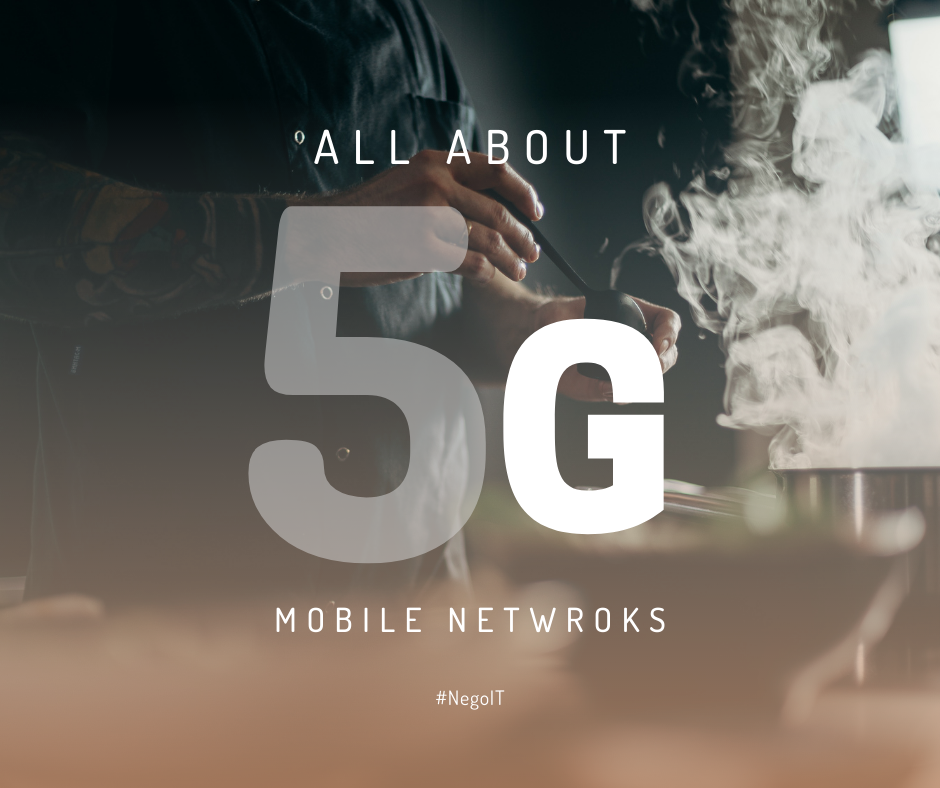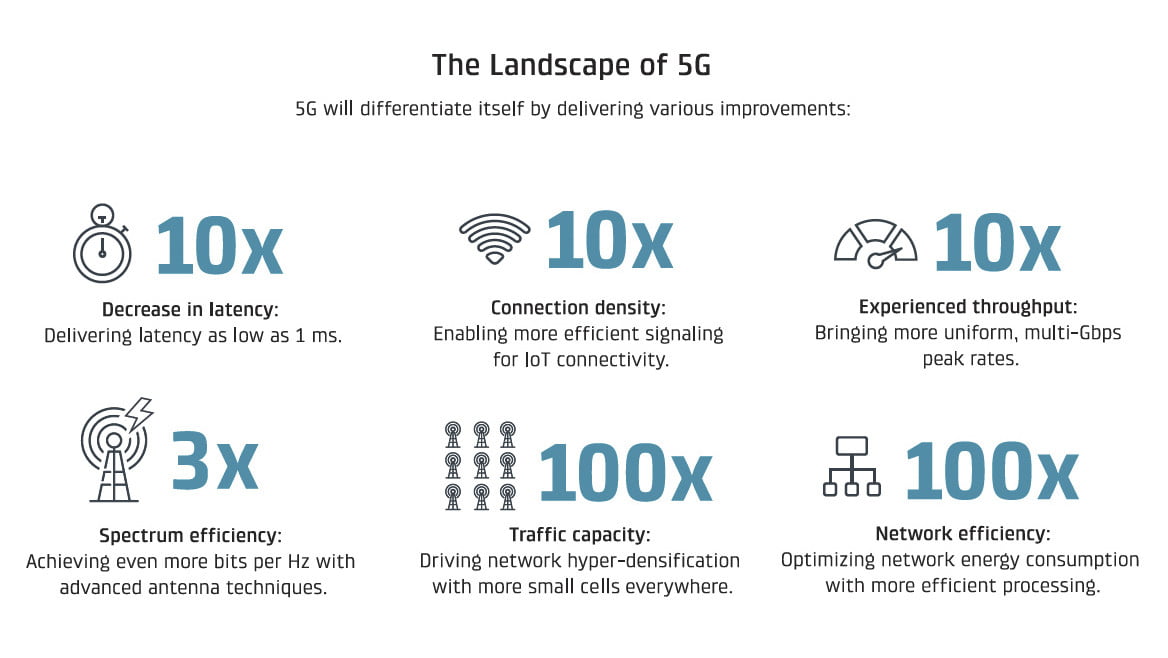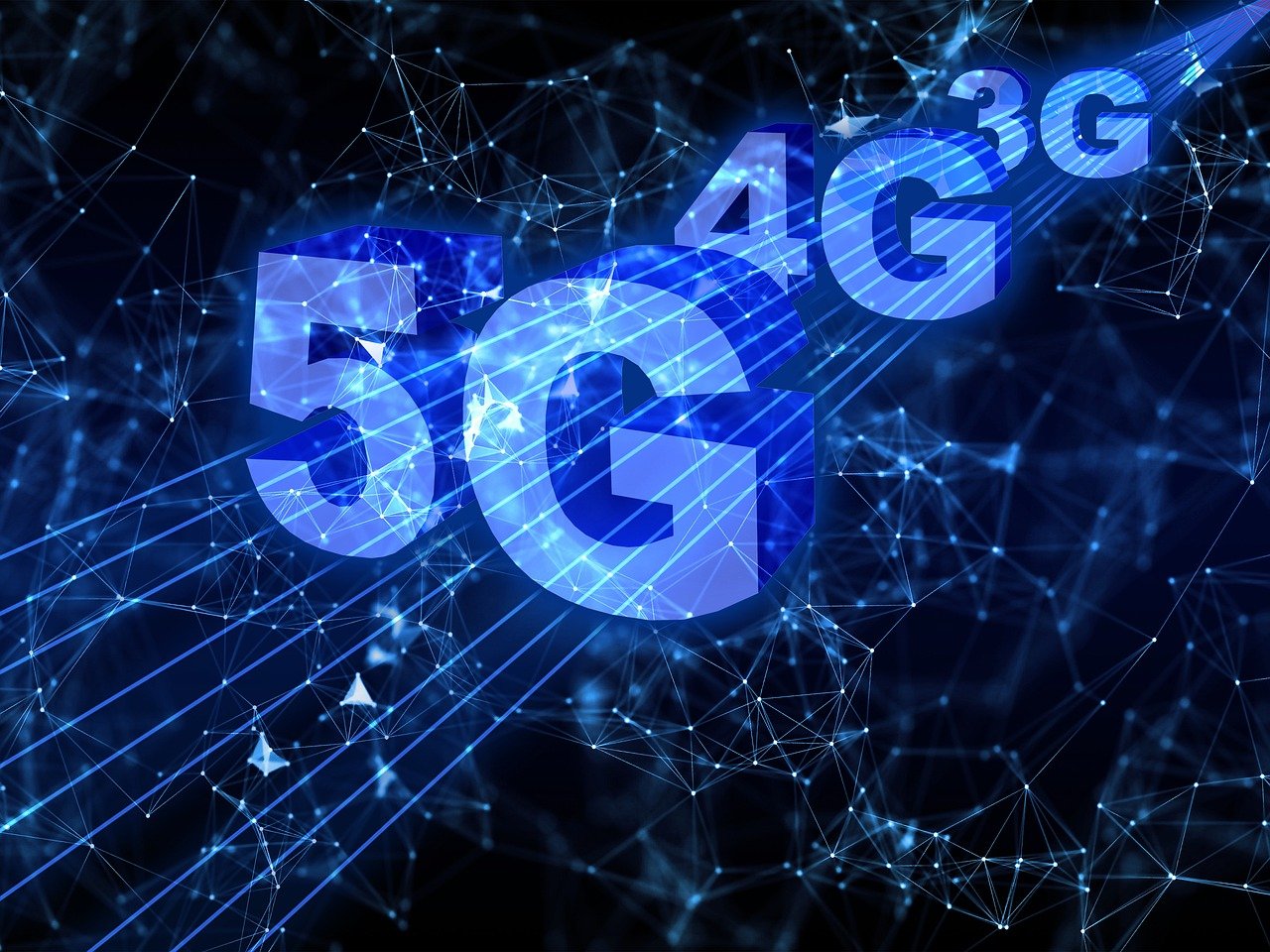
5G refers to the fifth generation of mobile networks. After 1G, 2G, 3G, and 4G networks, it is a new global wireless standard. 5G offers a new type of network capable of connecting nearly everyone and everything, including machines, objects, and gadgets.
Who invented 5G?
No one firm or person owns 5G, but numerous companies in the mobile ecosystem are working to bring it to life.
What makes 5G unique?
5G uses the same radio frequencies as your smartphone, Wi-Fi networks, and satellite communications. Still, it allows technologies to travel far further.
What can 5G do?
5G will do a lot more than boost your network connection. It opens up new possibilities for us, allowing us to develop ground-breaking solutions that benefit society as a whole.
What makes 5G superior to 4G?
1) 5G is significantly faster than 4G.
5G can deliver up to 20 Gigabits per second (Gbps) high data rates and up to 100+ Megabits per second (Mbps) average data rate, substantially faster than 4G.
2)5G's capability exceeds 4G.
5G is meant to enhance the traffic capacity and network efficiency by 100 times.
3) 5G's latency is lower than 4G.
5G's latency is much lower for quick, real-time access: a 10x decline of end-to-end latency to 1ms
5G Disadvantages
1) Obstructions can have an impact on connectivity.
The range of 5G connectivity is limited since frequency waves can only travel a short distance. Physical barriers such as trees, towers, walls, and buildings also disrupt the 5G frequency. The high-frequency transmissions will be blocked, disrupted, or absorbed by the obtrusions. To prevent this reversal, the telecommunications industry extends existing cell towers to enhance the distance.
2) Battery drain on devices
Concerning mobile devices connected to 5G, the batteries seem not to function for a substantial amount of time. To achieve this more excellent connectivity, battery technologies must go forward, with only a single charge powering a cell phone for a full day. Along with the drained batteries, people say that mobile phones get hot on a 5G basis.
3) Upload speeds
5G-technology download speeds are extraordinarily high, up to 1.9Gbps sometimes. However, upload rates rarely exceed 100Mbps, which isn't as unbelievable as first reported. However, the upload speed is higher than the 4G LTE when compared to existing mobile connectivity.
4) Rural access limitations
Although 5G could provide real connectivity in the larger urban areas, the connection will not necessarily help people living in rural areas. The 5G carriers will target significant cities with bigger populations and finally go into outer regions, but this is unlikely to happen in the near future. As a result, 5G communication will benefit just some of the population.


There will be some initial disadvantages with any new technologies as the system gets perfected, but 5G has several advantages that overcome any downside. First, 5G will continue to dominate the communications sector by improving speeds and reliability, mainly as infrastructure develops and its range expands.
5G wireless technology is intended to provide Faster internet rates, ultra-low latency, and increased bandwidth, advancing society, transforming industries, and drastically improving day-to-day experiences.
Are you interested in learning more about technology and what it means to you? Then, take an in-depth journey with us as we explore the differences between 5G and 4G.
Who invented 5G?
No one firm or person owns 5G, but numerous companies in the mobile ecosystem are working to bring it to life.
What makes 5G unique?
5G uses the same radio frequencies as your smartphone, Wi-Fi networks, and satellite communications. Still, it allows technologies to travel far further.
What can 5G do?
5G will do a lot more than boost your network connection. It opens up new possibilities for us, allowing us to develop ground-breaking solutions that benefit society as a whole.
What makes 5G superior to 4G?
1) 5G is significantly faster than 4G.
5G can deliver up to 20 Gigabits per second (Gbps) high data rates and up to 100+ Megabits per second (Mbps) average data rate, substantially faster than 4G.
2)5G's capability exceeds 4G.
5G is meant to enhance the traffic capacity and network efficiency by 100 times.
3) 5G's latency is lower than 4G.
5G's latency is much lower for quick, real-time access: a 10x decline of end-to-end latency to 1ms
5G Disadvantages
1) Obstructions can have an impact on connectivity.
The range of 5G connectivity is limited since frequency waves can only travel a short distance. Physical barriers such as trees, towers, walls, and buildings also disrupt the 5G frequency. The high-frequency transmissions will be blocked, disrupted, or absorbed by the obtrusions. To prevent this reversal, the telecommunications industry extends existing cell towers to enhance the distance.
2) Battery drain on devices
Concerning mobile devices connected to 5G, the batteries seem not to function for a substantial amount of time. To achieve this more excellent connectivity, battery technologies must go forward, with only a single charge powering a cell phone for a full day. Along with the drained batteries, people say that mobile phones get hot on a 5G basis.
3) Upload speeds
5G-technology download speeds are extraordinarily high, up to 1.9Gbps sometimes. However, upload rates rarely exceed 100Mbps, which isn't as unbelievable as first reported. However, the upload speed is higher than the 4G LTE when compared to existing mobile connectivity.
4) Rural access limitations
Although 5G could provide real connectivity in the larger urban areas, the connection will not necessarily help people living in rural areas. The 5G carriers will target significant cities with bigger populations and finally go into outer regions, but this is unlikely to happen in the near future. As a result, 5G communication will benefit just some of the population.


There will be some initial disadvantages with any new technologies as the system gets perfected, but 5G has several advantages that overcome any downside. First, 5G will continue to dominate the communications sector by improving speeds and reliability, mainly as infrastructure develops and its range expands.



There is no any comment yet! Be the first!